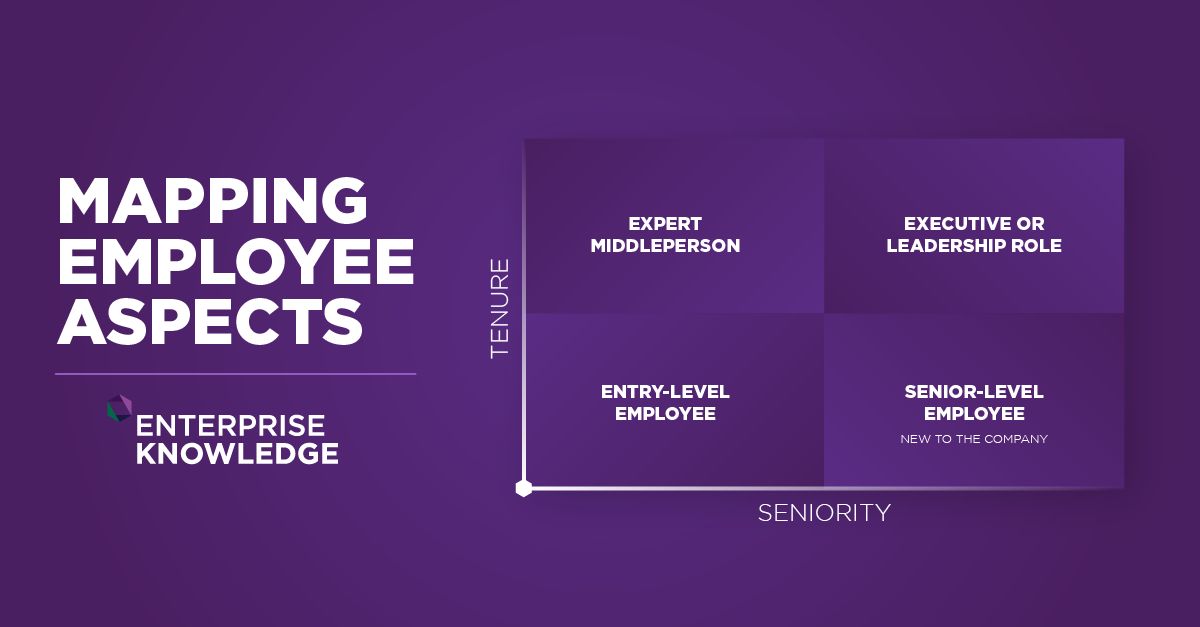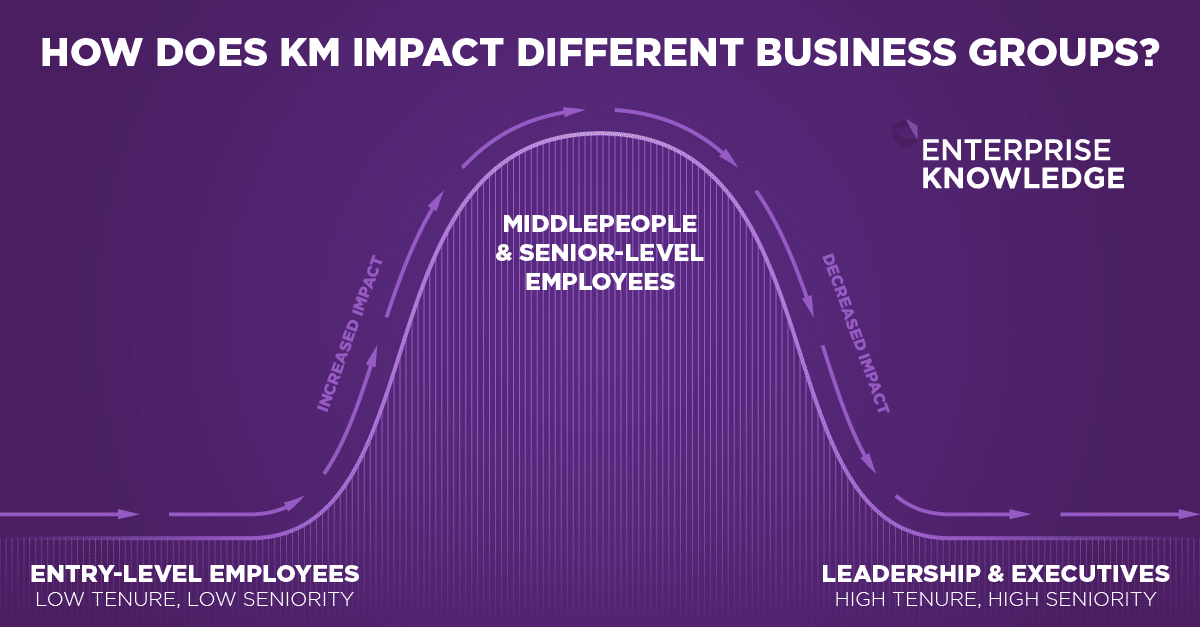One of the most engaging aspects of my work with knowledge management (KM) is that KM solutions are not one-size-fits-all, yet through our nearly 10 years as the world’s largest dedicated Knowledge Management Consulting firm, we’ve been able to identify trends and patterns for KM success throughout a variety of organizations. Every organization is unique, therefore, each of our clients will only achieve optimal KM success through the development of customized solutions that exactly fit the organization’s content and technological needs. Alongside these customized solutions, we bring understanding and expertise of how an organization’s employees, processes, and company culture typically should be structured and perceived in order to maximize the value and outcomes of any KM transformation.
An important precursor to developing any solution is our KM element of People, which focuses on the individual team members and the flow of knowledge within an organization. We define this element as the overarching characteristics and behaviors of team members as they pertain to knowledge management, which we investigate through human-centric discovery work like focus groups, interviews, and workshops. Oftentimes, the needs of certain users or specific KM roles are identified in the early stages of our discovery work with an organization, prompting us to determine where KM can have the greatest impact, help the organization understand why certain groups may be prioritized in the KM initiative, and define a roadmap that frontloads that which is most impactful to prove the value of KM.
While KM is crucial to each part of an organization, there are cases when KM efforts should be focused on a specific department, role, or persona. EK recognizes that KM roles and responsibilities differ based on an employee’s business function, tenure, and seniority, which in turn affects how KM impacts various business groups (cohorts of individuals at the same seniority and tenure). In this blog, I will walk you through an essential element of communicating the value and focus of a KM initiative: how KM impacts business groups differently.
To clarify some of the terms I’ll be using, seniority is about rank in an organization. Tenure, on the other hand, refers to someone’s length of employment. An employee can be high-ranking, but if he or she is newer to the company, they may not have the operational knowledge or experience of someone less senior. Familiarity with and use of an organization’s current KM processes will likely come with tenure, not seniority. I’ll now differentiate between Knowledge Consumers and Knowledge Creators in an organization, using a bell curve graphic to display how KM’s impact is not linear, but distributed based on seniority and tenure.
Knowledge Consumers
As seen on the bottom left and right sides of the bell curve, knowledge consumers are often entry-level employees or executives/leadership figures. Entry-level employees (low tenure and low seniority) often do not possess the knowledge or experience to create and share information, meaning that KM efforts and processes for them will focus on consuming knowledge, requiring an increased ability to find the knowledge and experts they need to do their jobs. On the other side of the spectrum, organizational executives and leadership (high tenure and high seniority) don’t often focus on everyday knowledge creation and sharing, though they may direct it or encourage it. These individuals rely on their employees to get them the information they need and produce new knowledge based on their guidance, vision, and overall strategic direction. KM metrics and Return on Investment (ROI) are primarily important to this group, as they depend on the overall business outcomes and economic value of KM initiatives, rather than the smaller and more detailed phases of a KM project.
Knowledge Creators
At the top of the bell curve lies knowledge creators, those “middlemen” and senior-level employees who have been with the organization for a good amount of time and/or possess subject matter expertise. Their everyday work generates the majority of knowledge and information within an organization, as they have the experience and wherewithal to recognize gaps in knowledge and fill them. Those that are well-tenured within this group also know how to generate valuable information and are familiar with the processes and systems that best support the flow of knowledge, whether that be capturing and transferring tacit knowledge or sharing and distributing explicit knowledge. Knowledge consumers depend on this group to supply them with expert information and guidance.
It should be obvious at this point how and why KM impacts different business groups. KM matters greatly to each of these groups, but during countless KM strategy and roadmapping engagements, we have found that knowledge creators both contribute to and benefit from improved KM processes the most. It is this type of employee that usually provides us with the best picture of an organization’s highest needs, day-to-day operations, and how things should be done because of their expertise and experience in creating and managing effective content, technologies, and workflows. Oftentimes, the people in the middle of the organization (the group at the top of the bell curve) are the most prolific creators of knowledge, though of course a successful KM program will empower all users to become knowledge creators. There are cases where knowledge consumers may be the focus and priority of a KM engagement, such as efforts related to training and onboarding, but oftentimes, those processes and best practices will still be directed and facilitated by knowledge creators.
While we do not “play favorites” with certain business groups in a KM effort, this knowledge is important when identifying with whom and how to validate KM solutions based on how said solutions will impact their everyday work. Keep the KM impact bell curve in mind when considering impacts and buy-in for your next KM initiative.
If you are interested in KM’s impact on your organization, contact us to learn more!


